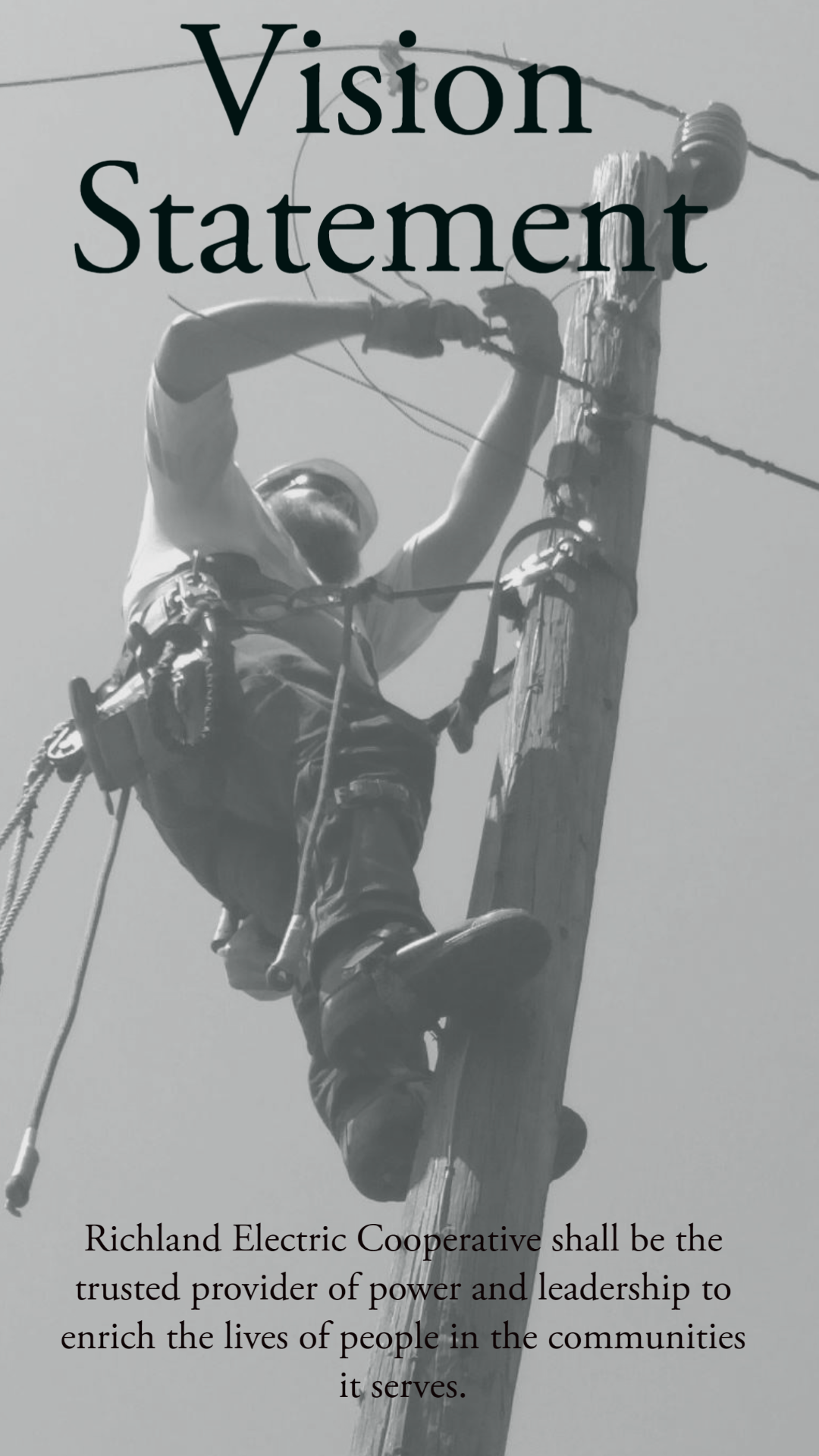Richland Electric Cooperative
1001
Miles of line
90
Years In Service
Richland Electric Cooperative provides electric service to members in Richland County, Wisconsin and parts of Crawford, Sauk and Vernon counties. Richland Electric Cooperative also provides First Call emergency response telephone service to members and area residents of the greater Richland County area.
We are organized as a cooperative and as such we are not just an ordinary business. We are a business owned by our member-consumers. We provide service to over 3,250 members in and around Richland County, Wisconsin. In order to receive electric service from REC you must be a member of the cooperative. You also have a voice in how our cooperative is operated. You are represented by a Board of Directors that are members of the cooperative. Each year you have the opportunity to vote for your choice of director or, if you desire, run for the position yourself. Director elections are held each year at our Annual Meeting held in March or April. There are nine directors on the REC Board and three are up for election each year.


Seven Cooperative Principles
Voluntary and Open Membership
Cooperatives are voluntary organizations, open to all persons able to use their services and willing to accept the responsibilities of membership, without gender, social, racial, political or religious discrimination.
Democratic Member Control
Cooperatives are democratic organizations controlled by their members, who actively participate in setting policies and making decisions. The elected representatives are accountable to the membership. In primary cooperatives, members have equal voting rights (one member, one vote) and cooperatives at other levels are organized in a democratic manner.
Members’ Economic Participation
Members contribute equitably to, and democratically control, the capital of their cooperative. At least part of that capital is usually the common property of the cooperative. Members usually receive limited compensation, if any, on capital subscribed as a condition of membership. Members allocate surpluses for any or all of the following purposes: developing the cooperative, possibly by setting up reserves, part of which at least would be indivisible; benefiting members in proportion to their transactions with the cooperative; and supporting other activities approved by the membership.
Autonomy and Independence
Cooperatives are autonomous, self-help organizations controlled by their members. If they enter into agreements with other organizations, including governments, or raise capital from external sources, they do so on terms that ensure democratic control by their members and maintain their cooperative autonomy.
Education, Training, and Information
Cooperatives provide education and training for their members, elected representatives, managers and employees so they can contribute effectively to the development of their cooperatives. They inform the general public, particularly young people and opinion leaders, about the nature and benefits of cooperation.
Cooperation Among Cooperatives
Cooperatives serve their members most effectively and strengthen the cooperative movement by working together through local, national, regional and international structures.
Concern for Community
While focusing on member needs, cooperatives work for the sustainable development of their communities through policies accepted by their members.
